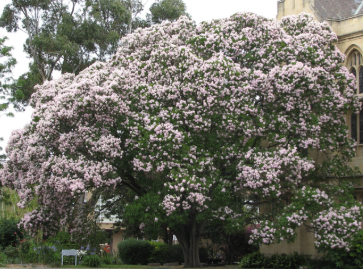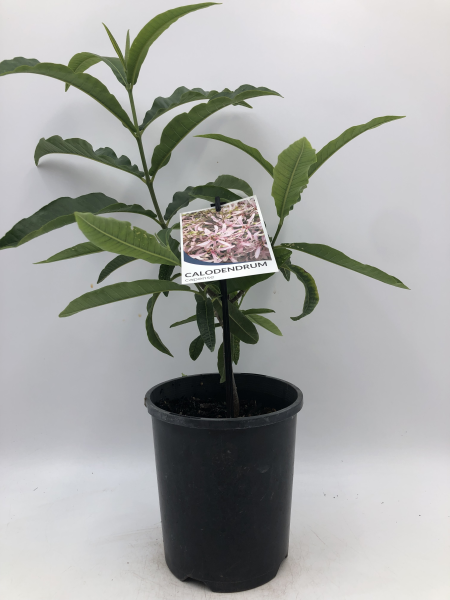Enter Your Postcode Below & Click 'Check' To See Delivery cost To Your Area
Calodendrum capense
Calodendrum capense
Couldn't load pickup availability
Common Name:
Cape Chestnut
Description:
Calodendrum capense, commonly known as the Cape Chestnut, is a semi-deciduous tree native to eastern and southern Africa. It is celebrated for its ornamental appeal, particularly its prolific display of large, showy pink flowers that bloom in terminal panicles during early summer. The tree typically reaches a height of 10 to 20 meters in its natural habitat, though in cultivation it often attains around 10 meters with a spreading canopy. The trunk is smooth and grey, supporting ovate leaves up to 22 cm long and 10 cm wide. Following the flowering period, the tree produces distinctive knobby, five-lobed fruit capsules containing shiny black seeds. These seeds are a source of Cape chestnut oil, also known as Yangu oil, which is utilized in African skincare products for its ultraviolet protection and high content of essential fatty acids and antioxidants.
Form:
- Tree - Medium
Mature Size:
- Height: 10–20 meters
- Width: 10–15 meters
Aspect:
- Full Sun
Flowering:
- Flowers in Early Summer
Flower Colour:
- Pink
Key Attributes:
- Ornamental Flowers
- Shade Provider
- Attracts Butterflies
- Source of Yangu Oil
Toxicity:
- Not known to be toxic to humans or animals.
Companion Plants:
- Grevillea species
- Kangaroo Paw (Anigozanthos)
- Westringia fruticosa
- Leptospermum species
These companion plants share similar cultural requirements and can complement the Cape Chestnut's aesthetic appeal in garden settings.


- Choosing a selection results in a full page refresh.
- Opens in a new window.


